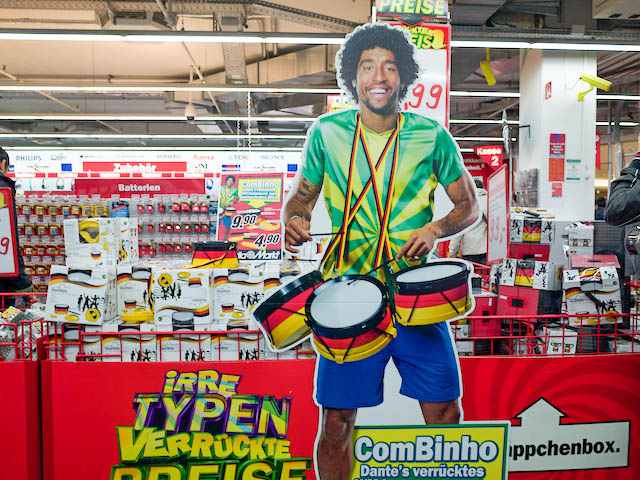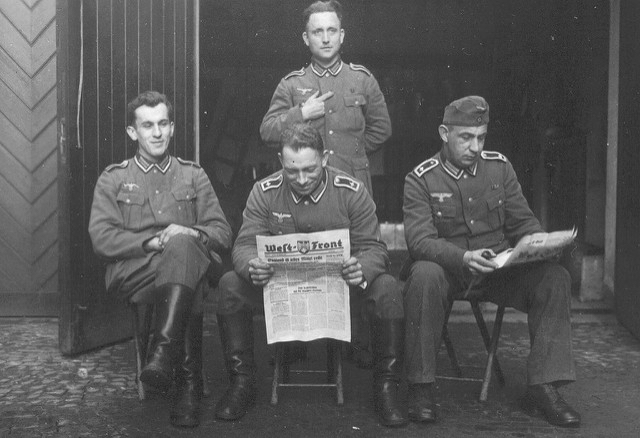In business, it’s often said that when a firm becomes too big and too diverse in its pursuits, its efficiency starts to decline. As many of the world’s largest governing bodies struggle with gridlock and rapidly rising grassroots opposition, it is worth asking once more whether a similar “law” applies to politics. And what better time than the World Cup?
There’s always a healthy dose of propaganda served up at the event, just like at the Olympics, in which international solidarity is simultaneously exalted and commercialized. Football fans are encouraged to purchase official merchandise and consume the food and drink of the Weltmeisterschaft’s sponsors, all in the name of “good sport”.
But the truth is that, for all the discourse of loving the game for its own sake, there is no better venue for staging nationalism. The Olympics has too many individual events to inspire the same degree of partisanship. With the World Cup, by contrast, there is one team only that everyone back home is supposed to be rooting for.
Even in the United States, which has traditionally preferred its homegrown brand of “football” to soccer, patriotic fervor has been mounting steadily over the past quarter century. Back in 2010, when the national side had to score a goal against underdog Algeria in order to advance to the second round, millions of Americans stopped what they were doing to cheer on their men. In most other countries, the intensity of devotion is much greater still.
As in Germany, for example, which is one of the favorites to win it all in 2014. Although German fans rarely demonstrate the exquisite passion for which the fans of this year’s host nation Brazil are famous, they still care enormously. So much, in fact, that they are keen to fit in as they root on their favorites. That’s why you see products like this one being marketed there right now, as photographed in a Media Markt store, in the immigrant-heavy Berlin borough of Neukölln: a do-it-yourself “samba” kit in the color scheme of the German flag.
It’s terribly kitschy — some would say delightfully so — yet still represents an authentic yearning to bring a little Germany to Brazil and, in the process, hope that a little Brazil rubs off on Germany. That’s why this advert, one of several in this product’s advertising campaign, features the Brazilian defender Dante Bonfim Costa Santos, who currently plays for Germany’s best club team, FC Bayern München. His smiling visage is meant to guarantee the authenticity of something that almost nobody is going to find authentic.
Germans are Germans; Brazilians are Brazilians. The idea that they could ever trade places in a meaningful way is absurd. The fiction of global solidarity on which the World Cup is founded actually reinforces this division, since it so patently ignores the distinctive characters of different nations, whether on the pitch or the battlefield. In other words, if the matches bring people together, it is only in order to sort them better afterwards.
Consider the precise nature of the samba kit Dante is sporting in this promotional display. Whatever Brazilian models its designers may have had in mind, they ended up with something that looks eerily like the instrument little Oscar bangs throughout Günter Grass’s famous novel The Tin Drum. It’s almost as if they had been enjoying an inside joke: how antithetical to the spirit of samba can we make this product and still ensure that is marketable?
Perhaps that sense of humor is ultimately latent in the World Cup itself, which provides an illusion of sharing — it’s the globe’s most-watched television program — that distracts us from noticing just how hard it is to break the chains of nationalism. To be sure, more and more participants in the event play for the country where they or their families ended up, rather than the one where their roots lie. There is talk that Dante might eventually play for Germany, even. But this superficial multiculturalism does nothing to reduce the force of national belonging.
Commentary by Charlie Bertsch. Photograph by Joel Schalit.





